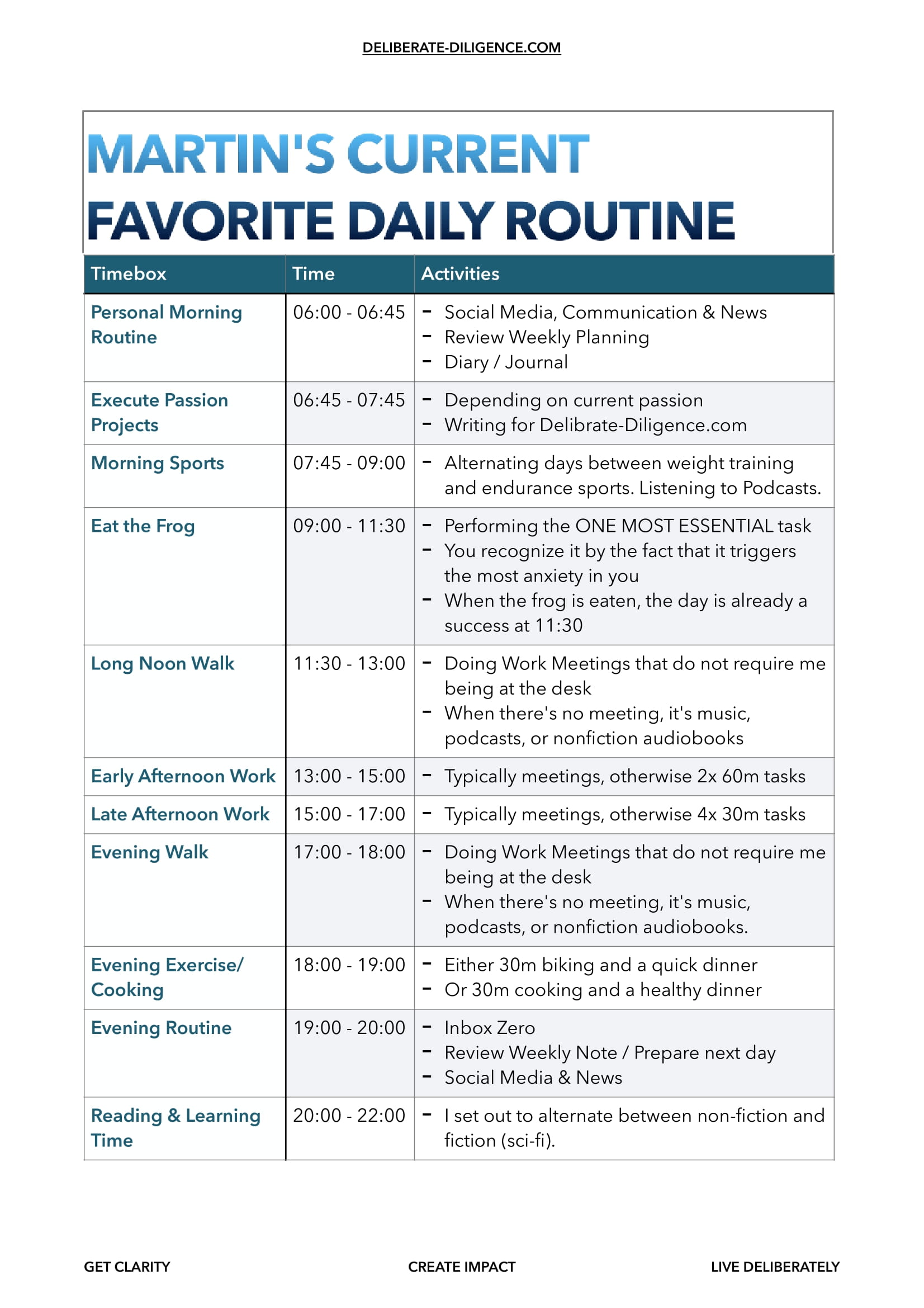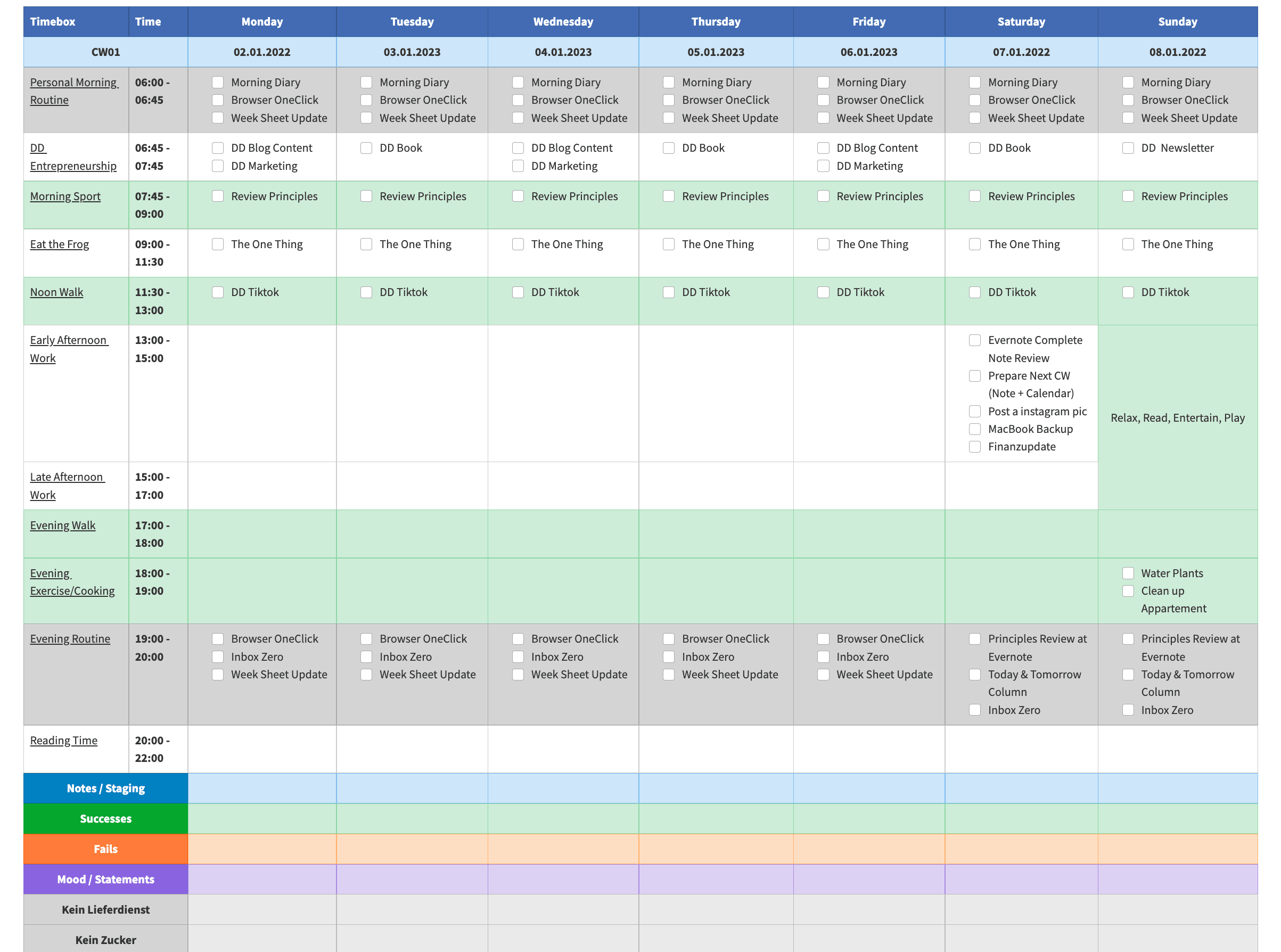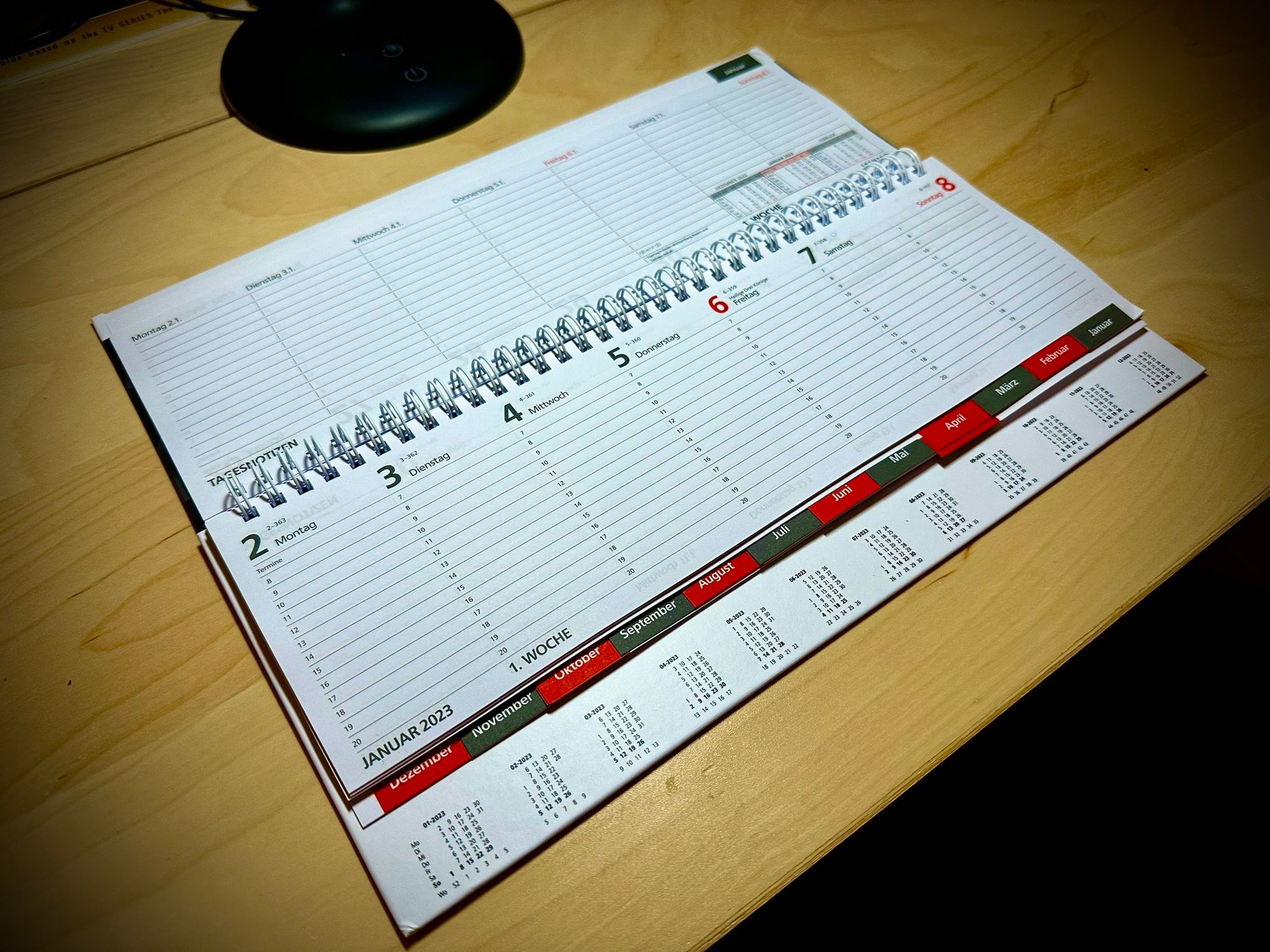Creating a daily schedule that allows you to be calm and productive.
A daily routine can bring a sense of satisfaction to our lives and be a powerful tool for productivity and success. It helps to eliminate decision fatigue and can reduce stress and anxiety. While it is not always possible to stick to an ideal, it is worth striving for a routine that works for you.

There's something to be said for the comfort and security of having a favourite daily routine.
The little things we do daily make up the fabric of our lives, and having a routine that we enjoy can bring a sense of stability and satisfaction to our days.
Of course, sticking to our ideal routine is not always possible. Life throws unexpected curveballs our way, and we often must react and adapt to keep up. But that doesn't mean it's not worth striving for the ideal.
A favourite daily routine can be a powerful tool for productivity and success. Staying focused and on track is more effortless when we know what we're supposed to do. It also helps to eliminate decision fatigue, as we don't have to constantly weigh the pros and cons of every little task that comes our way.
But the benefits of a favourite daily routine go beyond just productivity. It can also bring a sense of calm and balance to our lives. Knowing what to expect from our days can help reduce stress and anxiety. It can also help us prioritise the things most important to us, as we can build in time for the activities and pursuits that bring us joy and fulfilment.
So, even if it's not always possible to stick to our ideal daily routine, it's still worth striving for. It may take trial and error to figure out what works best for us, but the effort will be well worth it. Not only will we be more productive and successful, but we'll also find more happiness and contentment in our daily lives.
I have a love-hate relationship with my ideal daily routine.
I like the feeling of security and structure, the certainty that I will get everything done when I execute it. On the other hand, my daily routine breaks down 3/4 of the days because my job requires me to react to current events.
This difference between desire and reality means I have the hassle of constantly reprioritizing and feel terrible about it because I can't make the day what I want it to be (lack of self-determination). On the horrible days, which might be filled 100% by externally determined meetings, I feel aggression growing inside me towards this.... cage.
Theoretically, from this observation, there are two paths I could take:
- I could start looking for a job where I could 100% determine my daily routine (e.g. book author).
- I give up trying to bring some structure into my day and get used to reacting. Then at least, the conflict between expectation and practice is eliminated.
I did variant (2) for a few years, which helped me achieve career success. However, this phase was disastrous for all other areas of my life: Prioritizing work commitments resulted in neglecting personal endeavours and contributing to unhealthy weight gain. My focus on professional obligations overshadowed my passion projects and pursuits.
So variant (1) is the solution after all? No: I found a third way.
The third option considers the desire for a structured daily routine as a multifaceted issue rather than a binary choice.
While some elements of your daily agenda may be dictated by the demands of a dynamic and volatile job and family responsibilities, there are still opportunities to assert personal control, such as by waking up early. At other times, adapting and responding to unforeseen circumstances may be necessary.
I've since found a daily routine that flexibly nestles around the reality of the day and has proven amazingly resilient in practice.
Even with this multifacet variant, I sometimes have to give up due to business trips, but on three-quarters of the days, it works out like this:

The trick is to defend the time boxes in gradual degrees against time thieves:
- The time after I get up is my most valuable time: I have maximum willpower, mental energy, and few distractions (just my wife/family). I fight hard to keep my morning routine and only give it up on business trips.
- My eat-the-frog time box is valuable, but I surrender it when a critical work meeting is set for me.
- I enjoy walking at a set time and using it to participate in meetings. Sometimes I have to be at my desk and skip or at least postpone my walk, but I don't stress myself when that happens.
- I don't defend my afternoon schedule at all: what happens in the afternoon, I leave to the flow. I don't try to exercise control there because that is hardly possible. If contrary to expectations, nothing should come in, I have pre-planned some tasks.
- If something urgent comes up in my evening timebox, I will take care of it. However, I avoid tasks that require a lot of willpower or focus in the evening because my ability to do them well is reduced.
Define your ideal time allocation
If you follow these steps, you can come up with your ideal day schedule for yourself:
- Step 1: Imagine the day as a gradient that starts with a lot of energy in the morning and ends with little energy left after you use your day to create impact. This means the essential activities should occur in the morning and the unimportant chores in the evening. Just sketch yourself an hourly grid from your get-up time to your bedtime.
- Step 2: But to think in which time frames? Listen to your feeling! My time definitions above have formed intuitively for me. They came into being, and I did not consciously define them in advance. Listen to yourself: What are your natural time boxes? Try to recognize them and enter them in your table as empty boxes.
- Step 3: What is not in the calendar does not take place. Think about the areas of your life you want to block out time for each day and how much. Examples: Routines for yourself, Lifestyle & Leisure, Finances & Investments, Family & Relationships, Health & Fitness, Creation & Art, Entrepreneurship, Work, Knowledge & Learning, etc.
- Step 4: You should now have a table similar to the one I embedded above. Now build a weekly planner from it in the tool of your choice (e.g. on paper, Notion, or Evernote) and plan your next week.


You'll notice a certain satisfaction and serenity at this point. At least, that's how I feel. You now must apply this ideal plan and keep improving weekly in iterations.
I wish you great success, clarity and impact, which you will achieve by consciously planning your agenda!
Feel free to add your tips and thoughts to this page's comment section, Twitter or LinkedIn!
Best regards,
-- Martin from Deliberate-Diligence.com


Discussion